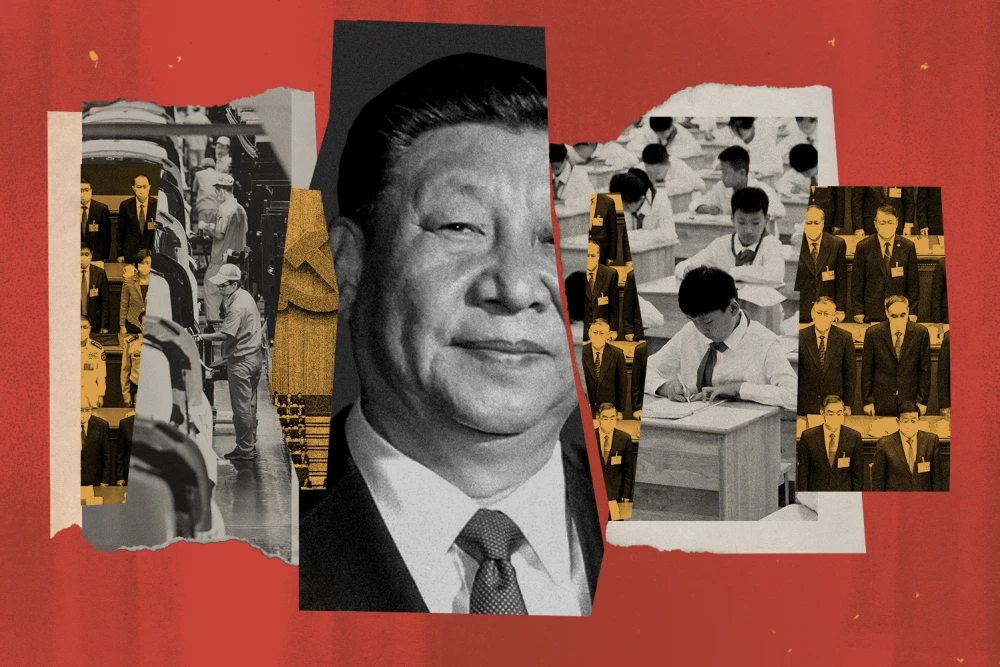This year, at a once-every-five-years event, China’s dictator, Xi Jinping, was confirmed for a third term as general secretary of the Communist Party, president of the country, and leader of the military. If Xi had followed the pattern of his two predecessors, he would have anointed a successor back in 2017. Instead, he purged any potential rising star who might challenge his power, changed the constitution in 2018 to allow himself indefinite rule, and cemented his control by surrounding himself with yes men and the politically weak.
Xi rose to such power in part because he was boring. More flamboyant figures, such as his rival Bo Xilai, who fell in a dramatic scandal in 2012, were seen as dangerous by the party elders, semi-retired leaders who still played a strong role in selecting each generation of leadership. Xi was a solid, uncharismatic, competent fixer; that allowed him to escape the pressures that forced most “princelings” like him—the children of the founding generation of Chinese leaders—out of politics and into the private sector out of fear that they might accumulate too much power. He was a safe pair of hands, or so it seemed.
But throughout his time in office, Xi has proved anything but. He’s doubled down on party control in every aspect of Chinese life, from the tech sector to sexuality to the cinema. Rolling purges have decimated state institutions, while the economy has groaned under the weight of constant government interference—at a time when three decades of high growth were already coming to an end. The aggressive “wolf warrior” diplomacy endorsed by Xi has left China hugely unpopular worldwide, and the relationship with the United States has collapsed. A close alliance with Vladimir Putin’s Russia has been strained by the disasters of Ukraine. China is looking less like a potential colossus and more like a stumbling, if still dangerous, giant.
And yet, Xi’s power still seemed almost unassailable at home, amid blanket surveillance by both big data and secret police, a security force under his thumb, and a burst of nationalism in 2021 thanks to the country’s then-successful suppression of COVID-19. As the year draws to a close, even his domestic control seems in question. A wave of protests has led to the end of his widely unpopular zero-COVID policy—leaving China facing a potentially devastating wave of outbreaks among a still incompletely vaccinated population.
Xi’s own political power may be far weaker than anticipated—but there are plenty of ways he could still quell any opposition, with little sign of any concerted faction against him emerging within the Communist Party. Nor is there any clear sign of who would come next if he did fall. For the moment, the future of China is still in Xi’s hands.

